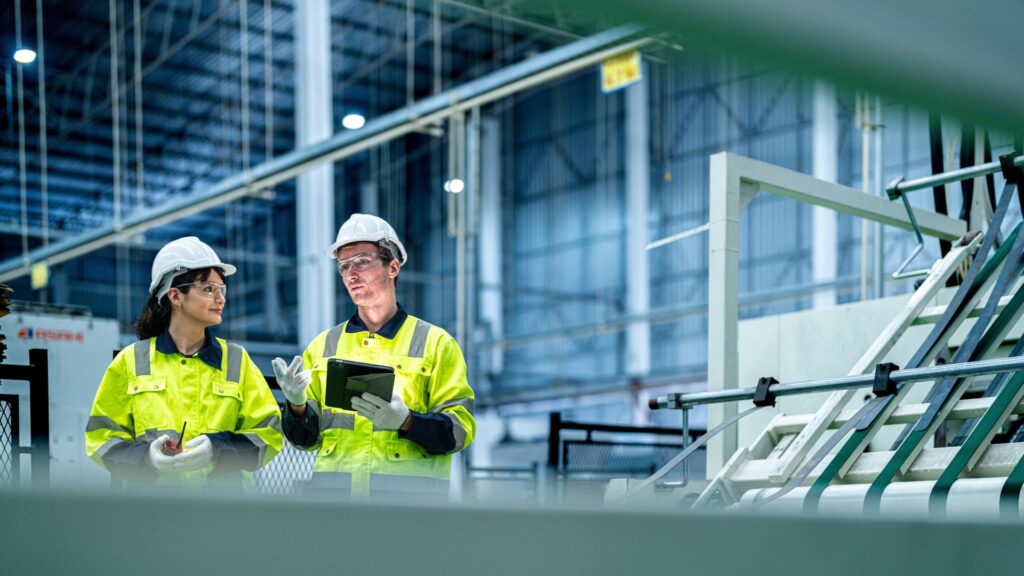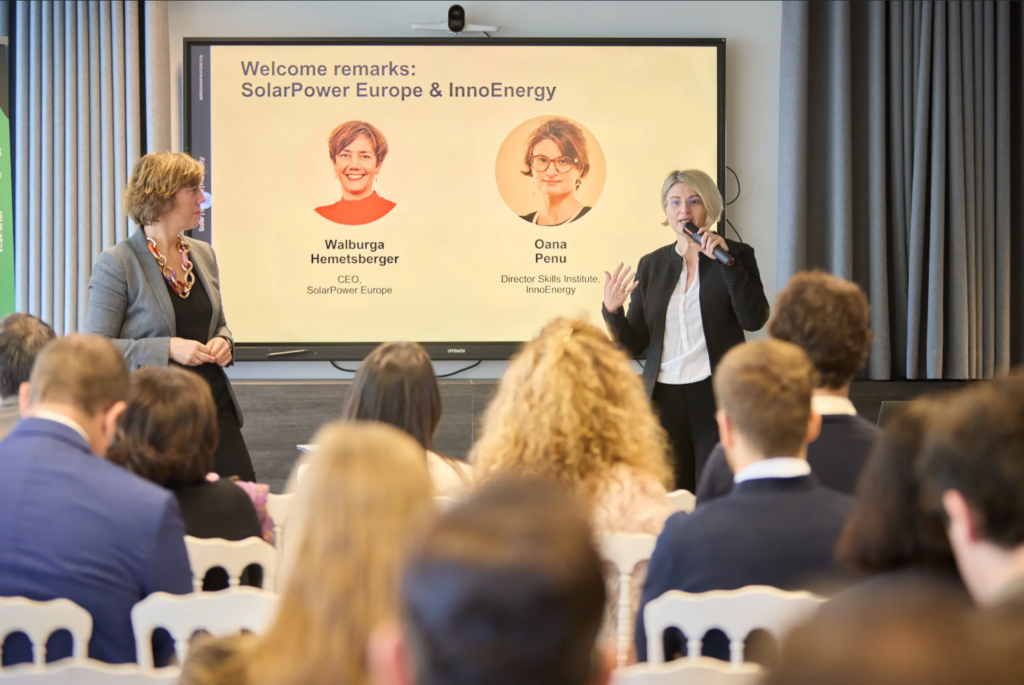Across Europe’s energy leaders, the shift towards clean technologies is gathering pace, but it is anything but straightforward. Investment priorities are evolving, new players and innovations are entering the scene, and mounting regulatory demands are reshaping strategies — all against a backdrop of volatile market forces.
In this environment, the most critical success factor is not only the availability of technology or capital but the ability to keep the right people on board for the long term. For HR and L&D leaders, this means building retention strategies that anticipate skills gaps before they appear and keep the key talent engaged through change – losing it during a period of industry change can undermine operational readiness, delay projects and weaken a company’s ability to respond to emerging opportunities or challenges.
The cost of losing the people you need most
Retention challenges are already visible across the energy industry. In utilities, turnover rates reached 7% in 2023, the highest recorded in sector surveys (Renewable Energy World, 2024). In technical fields where skills are scarce, replacing experienced staff can cost between 50% and 150% of their annual salary, not counting the operational disruption of onboarding new hires.
For companies in transition, the risk is even sharper. The shift to renewables is creating roles that are hard to fill externally, with demand for clean tech talent outpacing supply by more than double (CSE, 2025). Without strong retention, organisations face a revolving door in their most strategic positions.
Why talent development is the cornerstone of retention
In a competitive labour market, salary alone rarely secures long-term loyalty. Research across industries consistently shows that employees are more likely to stay when they see a future for themselves inside the organisation, one that includes growth, new skills and meaningful career pathways.
For clean tech transitions, this is amplified by two dynamics:
- The pace of technological change means yesterday’s skills quickly become outdated. Without ongoing development, employees can feel left behind or seek out employers who will invest in them.
- The shortage of specialised clean tech skills makes talent development a key differentiator in the fight for talent. Employees will join (and remain with) employers who give them the tools to adapt and advance.
From risk to opportunity: retention as a competitive advantage
Lack of talent development opportunities was one of the top predictors of turnover intention among energy sector employees, while those who received structured training reported higher engagement and stronger intent to stay (Sustainability Journal, 2024). High turnover is costly, but high retention can be transformative. When companies make skills development central to their talent strategy, they unlock multiple advantages:
- Employer brand: Skills development opportunities signal commitment to employees’ futures, making the organisation more attractive to potential hires.
- Knowledge continuity: Retained employees carry forward institutional expertise, reducing ramp-up time for new projects.
- Operational readiness: Teams with current skills can adapt faster to new technologies, keeping projects on schedule and compliant.
The energy sector faces a potential shortfall of hundreds of thousands of skilled workers in the coming decade (McKinsey, 2024). In such a market, companies that can both attract and retain talent will be positioned to outpace competition.
Upskilling, a retention engine
Skills development is all about building a clear link between learning and career progression, not training modules. This means:
- Providing targeted, role‑specific upskilling tied to current and future business needs.
- Ensuring training is practical, accredited and recognised across the industry.
- Offering transparent career pathways that show how new skills translate into advancement.
When employees see that their skills are valued and their growth is supported, loyalty strengthens. And when that talent development is aligned to the company’s strategic priorities, retention directly supports business performance.
How the Green Talent Accelerator supports retention
InnoEnergy Skills Institute’s Green Talent Accelerator is designed to help organisations turn skills development into a retention lever. Role‑based, modular training, developed with industry experts and aligned to European standards, ensures employees gain competencies that are immediately applicable and recognised through accreditations such as EDC and ECQA.
Crucially for retention, the Green Talent Accelerator integrates with existing HR and L&D systems, making it easy to roll out across teams without adding administrative burden. By mapping skills to career progression and tracking outcomes through clear dashboards, companies can demonstrate the impact of talent development on both engagement and operational readiness. This not only keeps talent in-house, but it also builds a stronger, future-ready workforce.
A call to HR and L&D leaders
For energy companies navigating the shift to clean tech, retaining the right people is as important as attracting them. Talent development is not a ‘nice to have’, it is the foundation of loyalty, engagement and long-term capability.
By embedding structured and business‑aligned upskilling into the heart of the talent strategy, HR and L&D leaders can reduce turnover by protecting institutional knowledge and positioning their organisations to thrive in the energy transition. With tools like the Green Talent Accelerator, retention becomes more than a defensive measure but rather a driver of growth.
Strategy means nothing without delivery. Start with skills.
Sounds like the right approach for your organisation?
Contact InnoEnergy Skills Institute to explore how the Green Talent Accelerator can help you build skills that make people want to stay.




